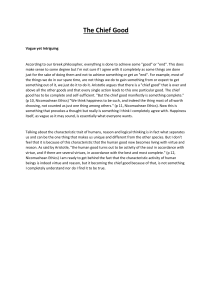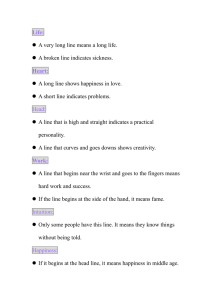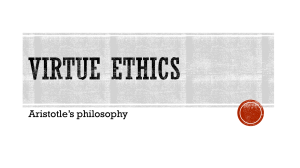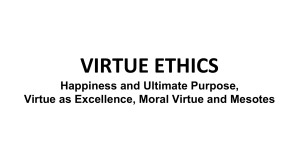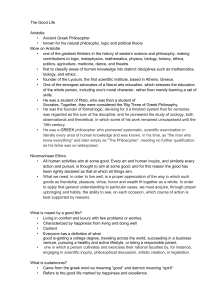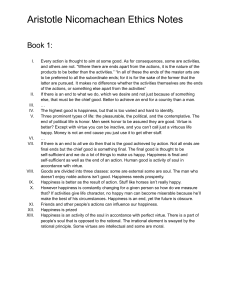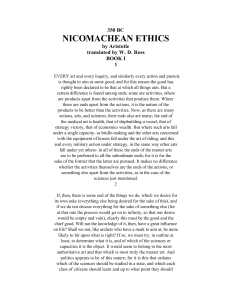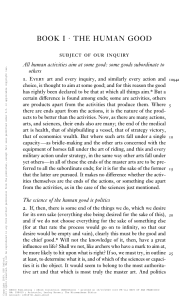Aristotle's Virtue Ethics: Character & Eudaimonia
advertisement
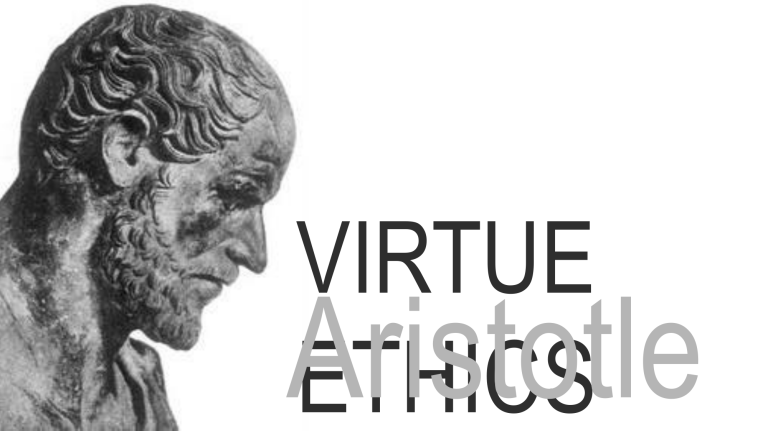
VIRTUE Aristotle ETHICS CHARACT PERSONAL ER & traits ITY CHARACTER & PERSONALITY Personality or character is an approach or a way of reckoning the different situations that one faces in his/her life—a way of navigating one’s way towards his/her flourishing as a human person. CHARACTER & PERSONALITY Character is not merely a theoretical construct but a product of action in the world—a constant doing or way of being that is made apparent by the possession and actualization of particular virtues and vices. In one’s journey towards self-realization and self-flourishing, there is an implied necessity to understand what he/she is actually aiming for in his/her life. In aiming for a goal, the person must also first understand what he/she actually is and is potentially capable of. ARISTOTL E ARISTOTL E Greek Philosopher who wrote Nicomachean Ethics ARISTOTL E Same with Plato on saying reason (logos) makes humans different from other beings. ARISTOTL E We become what we are by what we do and not merely by what we know. ARISTOTL E His ethics is grounded in the formation of one’s character. EUDAIMON IA EUDAIMON Chief end IA EUDAIMON Chief end IA “HAPPINESS” EUDAIMON Chief end IA “HAPPINESS” Self-sufficient, final, & attainable EUDAIMON “HAPPINESS” IA Happiness above all seems to be of this character, for we always choose it on account of itself and never on account of something else. Yet honor, pleasure, intellect, and every virtue we choose on their own account...but we choose them also for the sake of happiness, because we suppose that, through them, we will be happy. EUDAIMON “HAPPINESS” IA As the proper end of man, it is not some kind of inactive state but is actually something that one does. “Eudaimonia is an activity of the soul in accordance with virtue.” (Nicomachean Ethics, 13) THE SOUL THE SOUL Part of the human being that animates the body composed of the rational and irrational elements. RATIONAL SPECULATIVE (responsible for knowledge) PRACTICAL (responsible for choice & action) IRRATIONAL VEGETATIVE (nutrition and growth; involuntary) APPETITIVE (passions) A person’s raw biological and psychological desires blind him/her from the implications of what he/she does to the fulfillment of his/her end.
